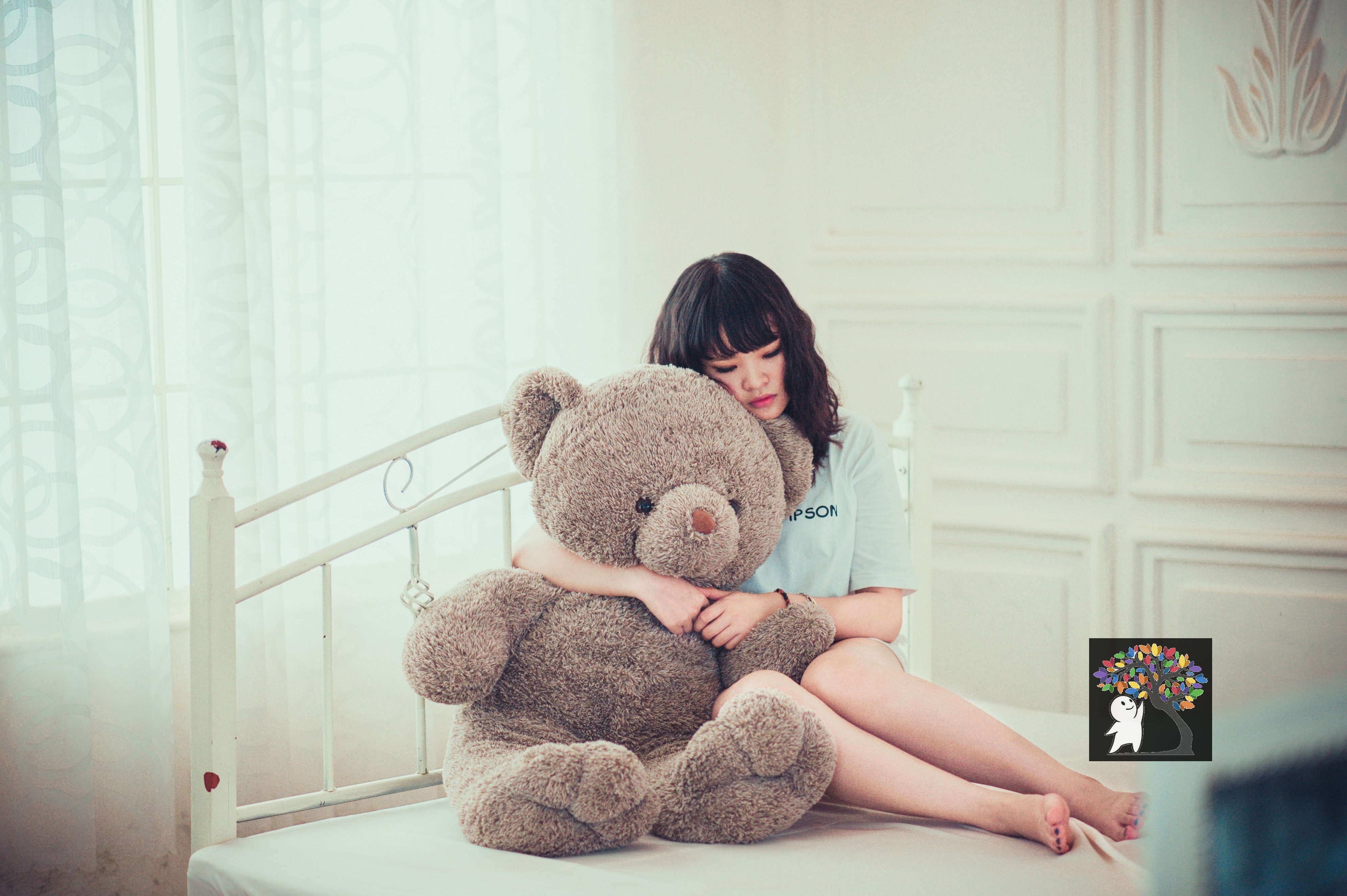8 Reasons Why You’re Always Anxious

Have you ever had a problem controlling your anxiety? Do you sometimes feel overwhelmed by it and don’t quite know how to deal with it?
Many of us are no strangers to stress and anxiety. As the single most prevalent mental illness in the world, anxiety affects over 40 million adults in the US alone, with more being diagnosed each year (National Institute of Mental Health, 2017). It’s a rampant and growing social concern that needs to be addressed and brought to the public’s attention. So many people around the globe live with anxiety every day of their lives, and most of them go on to struggle with it for the rest of their lives.
Anxiety can be brought on by a lot of different factors, such as genetics, biochemistry, childhood experiences, and social environments. It’s usually triggered by specific events or stimuli, but the problem is, most people aren’t aware of what causes their anxiety and end up thinking that they’re simply anxious for no reason.
With that said, here are 8 possible reasons why you might be feeling anxious all the time:
1. You have a toxic family/family member
Whether it’s your parents, your siblings, or another relative you live with, having a toxic family/family member is incredibly stressful to your mental health and emotional well-being. If someone at home is cruel and unkind to you, mistreats you, disrespects you, and constantly belittles you, it can damage your self-esteem and trigger strong feelings of anxiety and depression (Dunham, Dermer, & Carlson, 2012). A toxic family member is controlling, manipulative, and emotionally exhausting to be around. They take advantage of your relationship and constantly look for ways to exploit you and exert their dominance over you. Think you have a toxic family member that might be behind your anxiety? Read “20 Signs of A Toxic Parent” and “8 Signs You Have a Toxic Sibling” to know more.

2. You have a disruptive home life
Having a disruptive home environment is another reason why you may be feeling so much anxiety all the time (Anyan & Hjemdall, 2018). Because while all the negativity isn’t directed towards you, that doesn’t mean you won’t still be affected by it. Are your parents fighting all the time? Is your family suffering from serious financial problems? Is someone struggling with substance abuse or a serious illness (be it physical or mental) that’s tearing your family apart? Living in a chaotic, volatile, unstable household means always waiting for the other shoe to drop. Home is supposed to be a safe space for you to be yourself, speak your mind, and unwind after a long day, but instead, you dread going home and feel constantly on edge because of it.

3. You’re surrounded by toxic people
They say it’s important to choose your friends wisely, especially as you’re growing up, because these are the people you’re going to be spending most of your time with. Relationship problems and interpersonal conflicts are a common trigger for anxiety, so if you’re surrounded by fake friends or trapped in a toxic relationship, it puts you at a much greater risk for anxiety and depression (Hamric, 2019). Imagine, the people you consider your closest and dearest friends can’t be trusted. They abuse your friendship, sabotage your success, intentionally hurt you, make you feel insecure, and bring out the worst in you.

4. You’re stressed because of work/school
Are you overworking yourself trying to meet all your deadlines for school? Has your heavy workload thrown your work-life balance out the window? High levels of chronic stress are dangerous to your health and may lead to emotional burnout (Eslami, et al., 2016; Melchior, et al., 2007). Constantly worrying about your performance and setting unrealistically high expectations for yourself is enough to send even the most emotionally well-adjusted of us wracked with anxiety. And because stress is known to disrupt our eating and sleeping patterns, it can worsen symptoms of anxiety by tenfold as well.

5. You’re worried about your future
If you’ve been going through a lot change recently, it may be the reason why you feel so anxious all the time. Maybe you moved to a new neighborhood or transferred to a new school. Maybe you’re graduating and about to start college soon. Whatever the reason may be, change can often be scary and painful to deal with. It’s normal to feel afraid about all the uncertainty surrounding your life right now and wanting everything to stay the same, but you need to cope with these feelings in a healthy, positive way. Only when you learn to accept the change and move forward will you stop struggling with feelings of worry, dread, and anxiety.

6. You’re worried about what other people think
Does your anxiety only flare up in social situations? Does it feel worst when you’re surrounded by other people or talking to a group? What you may be experiencing is Social Anxiety Disorder (SAD), which is an anxiety disorder characterized by a strong fear of social evaluation (American Psychological Association, 2013). People with SAD feel anxious about talking to their friends, answering phone calls, public speaking, or attending social gatherings. If this sounds like you, read “8 Signs You Might Have Social Anxiety” to learn more.

7. You’re neglecting your self-care
Living with anxiety certainly isn’t easy, and sometimes we may want to resort to unhealthy coping mechanisms just to make ourselves feel better. Whether it’s skipping meals, staying up late, or locking ourselves up in our room all day, neglecting your self-care is only going to make your anxiety worse. In fact, most experts recommend making healthier lifestyle changes — such as eating balanced meals, getting a lot of sleep, and exercising regularly — to help battle against anxiety. You can read all about it on “8 Helpful Strategies for Coping With Anxiety.”

8. You have a negative mindset
Famed psychologist Aaron Beck, founder and pioneer of Cognitive-Behavioral Therapy, believed that having a negative mindset contributed significantly to the anxiety we feel. And research has certainly proved him right (Robichaud, Koerner, & Dugas, 2019). So much of our lives is determined by our thoughts and emotions. So if you’re a pessimist who always sees the negative side of things, you’ll only attract more negativity into your life. Our distorted thinking leads us to misinterpret things for the worse and makes it harder for us to cope with our anxiety and distress.

If you’ve been feeling anxious more often than not lately, you’re not alone. Anxiety is something a lot of people all over the world struggle with and it’s the leading mental health concern worldwide. Fortunately, however, it’s also highly treatable. The first step to overcoming it is to understand the reason behind it. Once you identify the triggers behind your anxiety, you learn better ways of responding to them and managing your anxiety. So don’t hesitate to reach out to a mental healthcare professional today and get the help you need.
References:
- National Institute of Mental Health (2017). What Are Anxiety Disorders? Retrieved from https://www.nimh.nih.gov/health/statistics/anxiety-disorders.shtml
- Dunham, S. M., Dermer, S. B., & Carlson, J. (2012). Poisonous Parenting: Toxic Relationships Between Parents and Their Adult Children. Journal of Family Psychology. Routledge, 2012.
- Anyan, F., & Hjemdal, O. (2018). Stress of home life and gender role socializations, family cohesion, and symptoms of anxiety and depression. Women & health, 58(5), 548-564.
- TED-Ed Student Talks. (2019, May 17). Leo Hamric: What can you do when a friendship becomes harmful? Retrieved from https://www.youtube.com/watch?v=2pzZX33z-qE
- Eslami, A. A., Rabiei, L., Afzali, S. M., Hamidizadeh, S., & Masoudi, R. (2016). The effectiveness of assertiveness training on the levels of stress, anxiety, and depression of high school students. Iranian Red Crescent Medical Journal, 18(1).
- Melchior, M., Caspi, A., Milne, B. J., Danese, A., Poulton, R., & Moffitt, T. E. (2007). Work stress precipitates depression and anxiety in young, working women and men. Psychological medicine, 37(8), 1119-1129.
- American Psychological Association (2013). Diagnostic and Statistical Manual of Mental Disorders, 5th Ed. Washington, DC, USA; APA Publishing.
- Eysenck, M. W. (1992). Anxiety: The cognitive perspective. Psychology Press.
- Beck, A. T., Emery, G., & Greenberg, R. L. (2005). Anxiety disorders and phobias: A cognitive perspective. Basic Books.
- Robichaud, M., Koerner, N., & Dugas, M. J. (2019). Cognitive behavioral treatment for generalized anxiety disorder: From science to practice. Routledge.



Responses